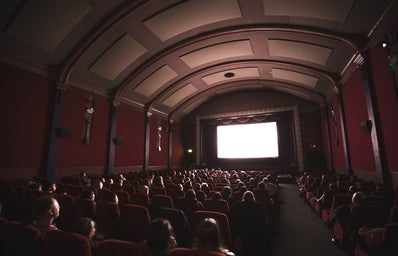With the height of awards season upon us, I can’t help but notice the underlying theme in popular culture within the films and TV being produced for our consumption. This year, in particular, but certainly noticeable in the past few years, popular culture, specifically Hollywood, has gravitated toward the habit of remaking, re-telling, adapting, or fictionalizing stories and characters that society has already been well acquainted with.
In many circumstances, these retellings or adaptations successfully offer their audience a chance to relive or re-enjoy their favourite moments through a contemporary and current perspective. However, many examples of recent films and television that have come from previously existing intellectual property, whether it be from other film worlds, books, or video games, seem to continually fall short of success in Hollywood. This leaves me wondering, why has the original content in Hollywood disappeared?
Mind you, some of the most successful film franchises in history have come from intellectual property that has previously existed; The Lord of the Rings Saga, Harry Potter, The Marvel movies, and the James Bond franchise are all objectively successful films. However, it seems that when seeing the success of these films, the industry is drawn to making more adaptations and spin-offs in the hope of the same success being replicated. As a result, these movies are often unnecessary and unsuccessful and they’re simply an attempt at a cash grab for the people who make them.
Was an entire new Halloween franchise necessary? Is the new Harry Potter HBO show needed? Did we need an origin story of Willy Wonka or another version of Narnia? Just because the first versions of the films were successful doesn’t mean we have to revisit them or add to them because oftentimes, the audience is left disappointed that it didn’t live up to what they expected.
The new trend of making sequels of cult favourite movies isn’t always necessary. Sure, these films are entertaining to some degree, but debatably, one of the best aspects of storytelling is that it leaves viewers with the opportunity to continue the story themselves after the credits roll.
Not only do film and digital media entertain, but they also function as a way to exercise the imagination and think critically about a life that isn’t ours. When we see different storylines of the characters we have come to love over decades come alive on screen once again, it alters the importance and impact of the product in its original state.
Hollywood’s need for remaking and adapting previously existing stories from other cultural products or that already have films has made the industry boring. We know these stories, their characters and their ending. As a result, the media made for entertainment feels recycled and pseudo-individual; although it may seem new and exciting, these products of Hollywood are repetitive and unimaginative.
Even the examples of these films that are objectively very well made and prove to be incredible testaments of creativity in Hollywood, such as the recent Dune franchise, Little Women, or The Batman, are still adaptations of works that have existed for years as original texts and as previous films.
Perhaps these examples of adaptations stand out as being successful among others due to the obvious passion and care the creators have for the integrity of the films; it’s certainly obvious when there is little respect or continuity for the original product. Although they’re incredible movies, do we need to be making them? I feel it’s becoming increasingly rare to see a contemporary movie that is an entirely original idea.
Further, there is something to be said about the creativity that is responsible for the creative choices behind the scenes that have an aspect of originality. Set design, costume design, and certainly screenplay are creative ideas that make a film original regardless of its previous origin. I’m not one to negate that these roles are monotonous because roles such as these make a film a collective creative product, merely that it must be mentioned that these films are not by any means revolutionary when it comes to originality. We’ve seen them before in one medium or another.
All this being said, it must be recognized that historical retellings fall into categories beyond the films that based their plot on previous fictional intellectual property. Many of these retellings of real-life stories, or stories inspired by real-life events, are necessary to inform an audience of historical perspectives that otherwise would not be as well known. Films from this year, such as Killers of the Flower Moon, The Iron Claw, and The Zone of Interest, all highlight important voices and perspectives from our human history.
Although not necessarily original fictional ideas in terms of their settings and character credibility, they have a different impact than the reworkings of previous stories due to their validity and respect for the real people and places they represent.
To take a look at this year’s Best Picture Nominees at the Oscars, out of the 10 films nominated, only three are original storylines: The Holdovers, Past Lives, and Anatomy of Fall. The other seven are adapted from novels or historical stories, which doesn’t make them nonetheless important, just not as initially as exciting due to the plot already being visited before. Some of the more successful movies and television that have been released within the past few years have all been stories the audience has never experienced before.
Television shows such as The White Lotus, Succession, The Bear, and films such as Avatar, Everything Everywhere All at Once, and The Banshees of Inisherin are examples of complete works of original fiction that have proved to capture an audience due to the remarkable worlds they create and the unpredictable nature of their stories.
The products of the media industry in recent years have been becoming more and more monotonous with the products it has already created. Audiences don’t need to see Tom Cruise play the same Top Gun character after thirty years, nor do we need yet another Spiderman or Star Wars trilogy. Sometimes, it’s best to leave what was successful in the past in the past and let its legacy continue through its fans without feeling the need to rehash the same storylines and characters at a cost to the integrity of the original piece of property.


